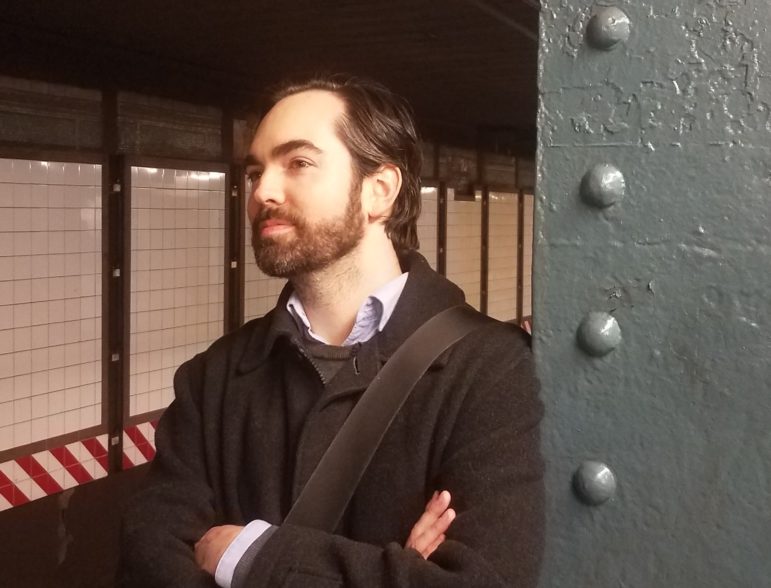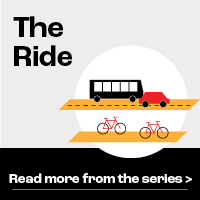
Murphy
Peter Harrison, Democrat for Congress, waits for a downtown train. His transit plan would make all public transit free, at a cost of $1.7 trillion over 10 years to the federal government.The first votes in New York’s 2020 Congressional primaries are four months off: Early voting begins June 13 for the federal and state legislative races that will be decided June 23. That makes it hard to say who among the candidates now in the field will still be there when voters get to have their say.
Already the field in the 12th district, which links the Upper East Side to slices of Western Queens and northern Brooklyn and has been represented since 1993 by Rep. Carolyn Maloney, has shrunk: On February 7, former state legislative aide and anti-sexual-harassment advocate Erica Vladimer withdrew from the race. That leaves the incumbent Rep. Maloney, Suraj Patel (who performed well in the 2018), comedian/activist Lauren Ashcraft and tenant/transit advocate Peter Harrison.
At least when it comes to the dollars and cents, Harrison’s campaign apparatus is dwarfed by all of his rivals’. Patel and Maloney each had more than $320,000 on hand at last count. Ashcraft trailed far behind with $47,000. Harrison had just about $13,000.
What Harrison lacks in money and name recognition he is hoping to make up with bold ideas like cancelling all student debt and reimbursing past debt payments, abolishing ICE and opening the the country to all immigrants, decriminalizing sex work, and building 10 million new homes.
The heart of Harrison’s plan is a $1.7 trillion initiative to make all public transportation free and accessible. On Friday, he spoke with City Limits about the plan in an apropos setting: on an uptown 6 train.
Ashcraft has also called for “nationalizing and upgrading all public transit and making public transit usage free for all,” although Harrison has provided slightly more detail on how to get there. Patel’s platform links to a 2018 post calling for a more modest approach: “a federal program to fund subsidized mass transit nationally, for every individual under the federal poverty line, in every city in this country with mass public transit.”
Maloney was a major voice pushing for the Second Avenue subway for decades. She “has brought billions back to New York’s 12th district,” according to her campaign website. “Her infrastructure projects have transformed not just how we move around New York City, but the entire New York region,” her literature says. “She’ll keep pushing for fully ADA-accessible compliant public transit, adding protected bike lanes, and pushing green infrastructure and jobs training to help New Yorkers get where they need to be.”









